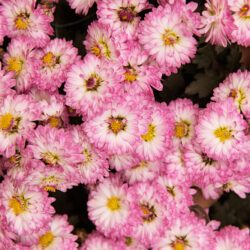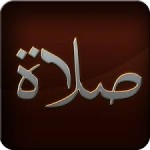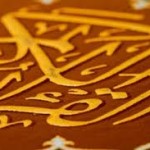Hanging Drapes in the House
Question:
Asalamualaikum. I would just like to ask if it is permissible to hang drapes within one’s home. I have some red organza drapes hanging around my bed and on the wall over the headboard and am unsure if this is permissible.
It has been suggested to me that it is not permissible to hang curtains or fabric on the wall unnecessarily but I am struggling to find the source so that I can explain this to my husband. Could you please clarify this issue for me and also suggest if the colour I am using, as it is a disliked colour in Islam, is ok to use?
Jazakallah Kheir
Answer:
In the Name of Allah, the Most Gracious, the Most Merciful.
As-salāmu ‘alaykum wa-rahmatullāhi wa-barakātuh.
The Mother of the believers, Aisha (May Allah be pleased with her) states:
“… Once when he had gone on an expedition I draped the door with a curtain. When he returned and saw it, I could discern from his face that he disliked it. He pulled it down and tore it apart, saying, “Allah has not commanded us to clothe stone and clay.” ‘She said, ‘We cut it and made two pillows out of the cloth, stuffing them with palm fibres. He did not criticize me for that[1].”
Imam an-Nawawi (may Allah have His Mercy on him) expounds that, while it is Makrooh Tanzihi to cover and adorn the walls and upholster the home with drapes, there is nothing in the Hadith which implies prohibition. In fact, the reality of the phrase, “Allah has not commanded us” denotes that such a thing is neither obligatory nor meritorious; however, it does not suggest any prohibition[2].
In general, although it is permissible[3], it is inappropriate to adorn the wall or bed with unnecessarily drapes, curtains or fabric (that do not contain any images of inanimate objects[4]) since it constitutes extravagance[5] and was disliked by Prophet Muhammad (peace be upon him). However, the use of frames, curtains or drapes containing pictures and images of an animate object will be impermissible[6].
And Allah Ta’āla Knows Best
Hanif Yusuf Patel
Student Darul Iftaa
UK
Checked and Approved by,
Mufti Ebrahim Desai.
References
[1] فقالت عائشة رضي الله تعالى عنها ... ساحدثكم ما رأيته فعل. رأيته خرج في غزاته، فأخذت نمطأ فسترته على الباب، فلما قدم فرأى النمط، عرفت الكراهية في وجحه فجذبه حتى هتكه أو قطعه وقال إن الله لم يأمرنا أن نكسو الحجارة والطين قالت فقطعنا منه وسادتين وحشوتهما ليفا فلم يعب ذلك علي
[Sahih Muslim, 4495]
[2] قال النووى: استدلو به على أنه يمنع من ستر الحيطان وتنجيد البيوت بالثياب، وهو منع كراهة تنزيه لا تحريم، هذا هو الصحيح وقال الشيخ أبو الفتح نصر المقدسي من أصحابنا: هو حرام. وليس في هذا الحديث ما يقتضي تحريمه، لأن حقيقة اللفظ أن الله تعالى لم يأمرنا بذلك، وهذا يقتضي أنه ليس بواجب ولا مندوب، ولا يقتضي التحريم
[Takmilah Fat`h al-Mulhim, 4: 166, Maktabah Dar al-Uloom Karachi]
[3] الأصل في الأشياء الإباحة
[Al-Ash`bah wa an-Naza`ir ma`a Sharh al-Hamawi, 1: 209, Idarah al-Qur`an wa al-Uloom al-Islamiyyah, Karachi]
[4] [Fatāwa Mahmūdiyyah, 19: 470, Dar al-Iftaa Jamiah Faruqiyyah, Karachi]
[5] إن المبذرين كانوا إخوان الشيطين، وكان الشيطان لربّه كفورا
[Al-Qur`an, 17: 27]
[6] أن ابن عباس رضي الله عنهما قال أخبرني أبو طلحة رضي الله عنه صاحب رسول الله صلى الله عليه و سلم وكان قد شهد بدرا مع رسول الله صلى الله عليه و سلم أنه قال ( لا تدخل الملائكة بيتا فيه كلب ولا صورة ) . يريد صورة التماثيل التي فيها الأرواح
[Sahih al-Bukhari, 3780]
عن عائشة رضي الله عنها قالت : دخل علي النبي صلى الله عليه و سلم وفي البيت قرام فيه صور فتلون وجهه ثم تناول الستر فهتكه وقالت قال النبي صلى الله عليه و سلم ( من أشد الناس عذابا يوم القيامة الذين يصورون هذه الصور )
[Sahih al-Bukhari, 5758]
عن ابن عباس أن النبى -صلى الله عليه وسلم- قال (من صور صورة فإن الله معذبه حتى ينفخ فيها الروح وليس بنافخ فيها أبدا)
[Sahih al-Bukhari, 2112] Also see: [Fath ul-Bari, 10/401. no. 5955]
DISCLAIMER:
The Ask Our Imam site hopes to respond to queries relating to Islamic law. It is not an Islamic Law Shari`ah Court. The questions and answers found on this website are for educational purposes. However, many of the rulings rendered here are distinct to the specific scenario and thus should be read in conjunction with the question and not taken as a basis to establish a verdict in another situation or environment. This site bears no responsibility in these responses being used out of their intended context, nor to any party who may or may not follow the responses given and is being hereby exempted from loss or damage howsoever caused. None of the responses rendered may be used as evidence in any Court of Law without prior written consent of Our Imam. Any reference to another website or link provided in our responses or article should not be taken as an endorsement of all the content on that website; in fact, it is restricted to the particular material being cited.
Posted in Aadaab (Ettiquettes & Manners)MiscelleaneousQur'an & Hadeeth on 17th Jan 2016 by Our Imam | 1038 Views











